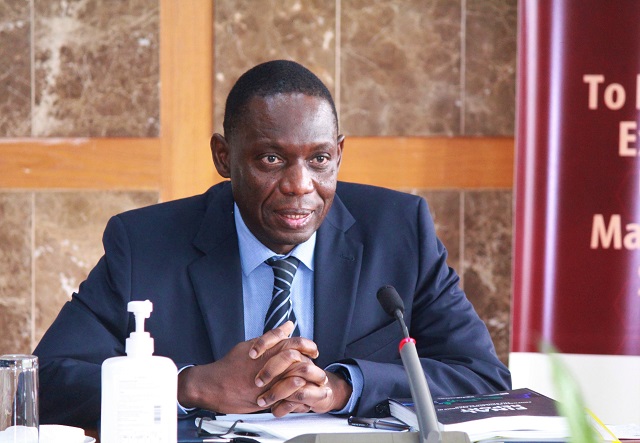
Kampala, Uganda | THE INDEPENDENT | The Bank of Uganda has joined the Uganda Development Bank in supporting climate-friendly economic development through the financial sector.
The Central bank is now developing guidelines that will help other financial institutions go beyond their own administrative environment-related policies, to ensure that the services they offer their clients have environmental components. This was revealed at the two-day World Development Finance Forum hosted by Uganda, on the theme, Game-Changing Solutions for Financing a Sustainable Post-Pandemic Future.
The forum also emphasized the need for African banks to join the Sustainability Standards and Certification Initiative (SSCI), which is aimed at delivering a locally-sensitive set of standards to make value-driven financial institutions more resilient and profitable. The initiative was developed by the International Sustainability Council and the European Organisation for Sustainable Development, and in Africa, the Uganda Development Bank was the first to apply it.
BOU Deputy Governor, Michael Atingi-Ego says the financial sector should evolve from just lending to offering other solutions that will sustain the development they are financing. “Sustainability is best utilized by balancing the different values of the financial sector and not focusing on one. The SSCI model shows that the financial sector must evolve to offer better solutions,” he said.
Dr Atingi Ego says that the Bank of Uganda has introduced initiatives like paperless operations, among others, and that other banks also have related environmental friendly initiatives. He however says they intend to issue environmental risk management guidelines for the whole industry.
President Yoweri Museveni also welcomed the idea that the initiative and the forum will compel the commercial banks in Uganda to focus on the needs of the people and the country. According to him, the financial sector is key to sustainable economic development through mobilization and use of domestic savings and investments.
“I am pleased that the forum focuses on introducing new solutions and examining promising practices to make the financial industry a powerful engine of sustainable green economic growth and environmental safety, Museveni said in a statement delivered by Finance Minister Matia Kasaija.
On his part, Minister Kasaija said the current leaders have the responsibility of ensuring that today’s challenges are solved by the current generation. He said that he has snubbed “big talk” gatherings that never materialize.
“We are here to identify how the financial sector can be more profitable while addressing the challenges of our time. Big talks have not helped much in implementing our global agenda. It’s time for us to take responsibility for our actions and drive national development.”
The Deputy Governor of the Reserve Bank of Zimbabwe, Dr Jesimen Chipika said the role of the financial sector in contributing to the management of climate change has been made more important by the Covid-19 pandemic. The environmental protection efforts in most parts of the world were dented by the increased human activities against forests, including agriculture and the search for alternative fuels as well as cutting trees for the sale of timber.
Dr Chipika says that while the effects of the COVID-19 pandemic tested the robustness and resilience of the financial sector, the financial sector has been a critical player in the pandemic by maintaining a smooth flow of credit to the public. She however said that one shortcoming of the initiatives in most countries is that sustainability initiatives have not yet been made into a national policy and each bank is doing things its own way.
Chipika says the sector is also facing pressure from an unregulated financial business due to digitization, changing consumer preferences as well as falling liquidity levels in economies. Yet, when offering relief funds through commercial or development banks, it is important to put in mind rescue and protection of natural resources, according to her.
UDB Managing Director, Patricia Ojangole, says the bank was admitted to the SSCI & value-driven certification for financial institutions because they saw the ability to be resilient irrespective of the current trends that are disrupting all businesses.
She says it is a continuous process of improvement as the situations and environments around the industry keep changing, adding that monitoring and evaluation will be done annually to ensure compliance and to maximize the benefits of certification. Ojangole says UDB has been tasked by the government to promote sustainable manufacturing practices and a modern energy sector, as well as Uganda’s green growth strategy.
UDB, being the only development finance bank owned by the government has been charged with managing most of the relief funds by the government for pandemic-hit enterprises. These projects fall within the key priority sectors of the economy, and in line with what the government calls Uganda’s development priorities, the bank’s financing interventions are mainly in primary agriculture, agro-processing which account for about 80 percent of its investment portfolio.
Ojangole says they are tasked with ensuring that apart from mobilizing finance, they are supposed to ensure the protection of the environment when ensuring the sustainability of the financial sector.
*****
URN
 The Independent Uganda: You get the Truth we Pay the Price
The Independent Uganda: You get the Truth we Pay the Price


